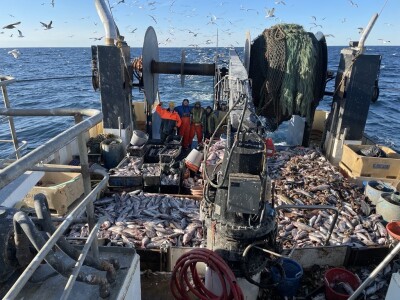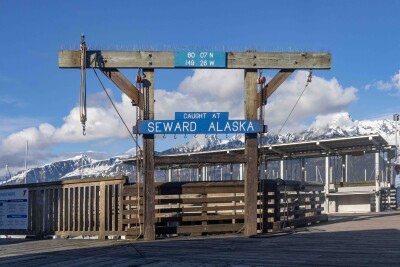Though few Maine lobstermen turned out for a federal hearing on lobster data collection in Scarborough on Tuesday, the proposal has drawn consternation from many in the state’s fleet, which lands more than 80 percent of the nation’s lobster catch.
The Atlantic States Marine Fisheries Commission is holding hearings throughout the Northeast this month on its proposal to improve harvest data for the American lobster and Jonah crab fisheries.
The biggest question in Maine is how much of the fleet will be required to submit reports. Every other state — New Hampshire, Massachusetts, Rhode Island, Connecticut, New York and New Jersey — requires 100 percent harvester reporting. Maine chooses 10 percent of its permit holders at random to submit reports.
“We looked at the 10 percent that is being done in Maine,” said Kathleen Reardon, senior lobster biologist with Maine’s Department of Marine Resources and chairwoman of the commission’s Lobster Technical Committee. “It is already stratified. They are selected as 10 percent of each license class in each zone.” That includes recreational licenses, as well.
“The 10 percent is statistically precise for the metrics that we looked at,” Reardon added. But the analysis did not include spatial data, which could help lobstermen defend their territory in an era of increased competition for ocean bottom. Proposals for offshore aquaculture, oil drilling, coral protections, wind farms and other ocean-based projects are on the rise.
“Collecting spatial data is important. We need to have data about where we fish,” said Genevieve McDonald, a lobster boat captain out of Stonington. “For example when we’re talking about coral closures or energy projects, we can show that we’re using that area.”
Patrick Keliher, Maine’s DMR commissioner, noted that 100 percent reporting would cost the state another half-million dollars using its current system of paper data collection.
“Right now everyone is filling out their logbooks, monthly logbooks,” said Reardon. “That takes up resources at the department because people have to enter them and audit them.”
She added that the commission would look at online reports if it expanded harvester collection.
“Hopefully we can collect that data in a way that’s convenient and cost effective for the fleet and for management,” McDonald added.
The draft poses three questions for public comment:
What percentage of harvesters should be required to report in the American lobster and Jonah crab fisheries?
Should current data elements be expanded to collect a greater amount of information in both fisheries?
At what scale should spatial information be collected?
The first of Maine’s two meetings was held Tuesday, Jan. 9 in Scarborough, and the second on Thursday in Ellsworth. The commission will be accepting public comment until 5 p.m. on Monday, Jan. 22.
Submit comments to:
Megan Ware, FMP Coordinator
1050 N. Highland St., Suite A‐N
Arlington, VA 22201
(703) 842-0741 (fax)
[email protected] (subject line: Lobster Draft Addendum XXVI)







